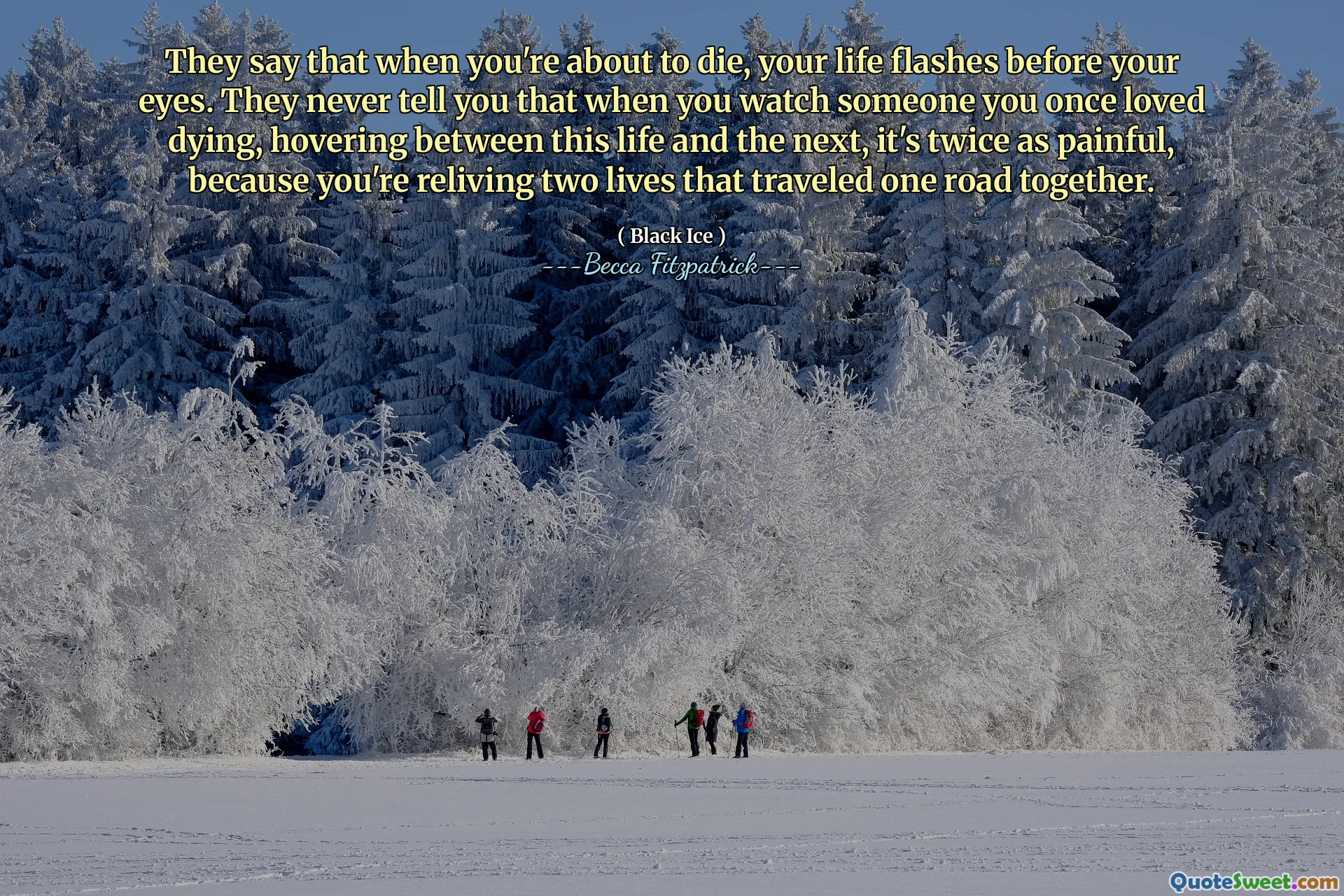
They say that when you're about to die, your life flashes before your eyes. They never tell you that when you watch someone you once loved dying, hovering between this life and the next, it's twice as painful, because you're reliving two lives that traveled one road together.
[Markdown format] The quote offers a poignant reflection on the profound pain experienced when witnessing the decline of a loved one rather than facing one's own mortality. It delves into the emotional complexity of watching someone dear to us hovering between life and death, and how this experience amplifies grief because it involves reliving shared memories and moments that once defined their and our existence. Unlike the fleeting experience of one's own near-death or reflection, witnessing a loved one’s struggle emphasizes the enduring bonds that tie us together. It underscores the depth of attachment and the sorrow in experiencing their transition from life—reminding us that love intensifies pain, especially when the bond was deep and meaningful.
This observation resonates deeply because it highlights a universal truth about human emotion and compassion—the pain of loss is magnified when witnessing the parting of someone we love, as it also brings to light the shared history and journeys taken together. The quote acknowledges that loss isn't simply about the absence of a person but encompasses the remnants of joint experiences, laughter, and love that make parting so emotionally devastating.
In essence, it encourages us to reflect on the interconnectedness of our lives and how love and connection heighten our emotional responses to mortality. It also reminds us that witnessing life’s end isn’t just about the ending itself but about the enduring memories and the grief that accompanies such profound moments. Such awareness can deepen our empathy and understanding of the pain others endure when facing loss, especially those witnessing loved ones transition between worlds.
This quote thus offers a heartfelt insight into the bittersweet nature of love—how it makes us vulnerable but also how it shapes our capacity for empathy and resilience in the face of inevitable change.






